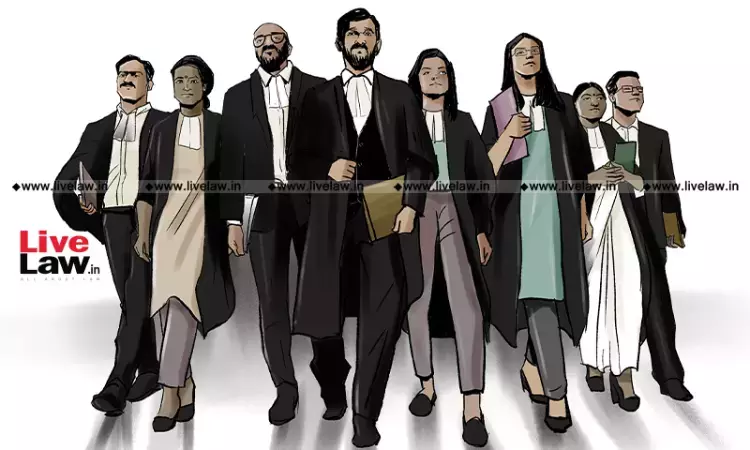- Home
- /
- High Courts
- /
- Kerala High Court
- /
- Kerala High Court Allows Lawyer's...
Kerala High Court Allows Lawyer's Plea Against NCTE For Payment Of Pending Legal Fees, Imposes ₹50K Cost
K. Salma Jennath
26 May 2025 6:00 PM IST
The Kerala High Court recently allowed a writ petition filed by an advocate against the National Council for Teacher Education (NCTE) seeking payment of over Rs 12 Lakh unpaid legal fees, imposing a cost of Rs 50,000 on NCTE finding its conduct "blameworthy". Rejecting NCTE's argument that a writ petition for payment of legal fees is not maintainable, Justice Mohammed Nias C.P. clarified that...
The Kerala High Court recently allowed a writ petition filed by an advocate against the National Council for Teacher Education (NCTE) seeking payment of over Rs 12 Lakh unpaid legal fees, imposing a cost of Rs 50,000 on NCTE finding its conduct "blameworthy".
Rejecting NCTE's argument that a writ petition for payment of legal fees is not maintainable, Justice Mohammed Nias C.P. clarified that the maintainability of the writ petition for "unpaid professional fees" is not barred unless there are complex factual issues that prevent adjudication. It was further found that there is no legal backing or court ruling to state that such a petition cannot be admitted merely on the ground that it cannot be decided without determining the disputed question of fact.
"Adopting any other position would imply that an advocate, who has diligently represented a client throughout the entirety of a case, would be compelled to initiate a separate suit against his own client, incurring court fees and navigating the constraints of the period of limitation. Such an approach would impose an unwarranted burden on legal professionals, forcing them into such strained circumstances unless the matter involves complex issues requiring factual adjudication. This would undermine the very essence of legal practice, where the advocate's role is to serve the client's interests without the needless complication of parallel proceedings, save for circumstances that genuinely demand detailed factual examination," the court added.
Background
The writ petition was filed seeking payment of legal fees to the tune of INR 12,11,770/- in 590 cases handled by the petitioner's late father, Advocate V.M. Kurian, for the NCTE. The bills have been pending from 2004 and even after repeated requests, there was no response from the respondent.
The respondent sought to resist the writ petition stating that the petitioner did not comply with Exhibit R3(b) guidelines (The NCTE Legal Guideline which includes legal fees payable to the panel counsels). The petitioner contended that since the aforesaid guidelines came into place only in 2017, it cannot be made applicable to cases handled before that.
Findings
The Court noted that the jurisdiction under Article 226 allows the High Court to entertain petitions involving factual disputes when State agencies act arbitrarily or violate constitutional guarantees. Moreover, a “hands-off” approach is not absolute in this case as it would compel an advocate to initiate a separate suit against his own client, undermining the essence of legal practice.
With respect to the contention on applicability of Exhibit R3(b) guidelines, the court found that it can be made applicable to those cases filed after its issuance. The Court also found that such type of guidelines cannot be taken as an excuse not to pay legal fees that are due.
The learned Single Judge referred to Rules 11, 12, 28, 29, and 38 in Part VI – Rules Governing Advocates, Chapter II - Standards of Professional Conduct and Etiquette, Section II – Duty to the Client, of the Bar Council of India Rules. The Court observed:
“A reading of the above Rules of the Bar Council of India Rules clearly shows that a lawyer-client relationship is based on a contract, express or implied, and when the lawyer accepts a brief and the client agrees to a fee, a binding contract is formed. The Advocate has to be compensated for the time, skill and effort, and when a fee is stipulated and accepted by both parties, the client is agreed upon, a lawyer can claim a reasonable fee based on the value legally obligated to pay. Even in cases where there is no fixed fee of the services rendered. Lawyers providing specialised intellectual and legal services are entitled to a fee consistent with their standing and the nature of the case, and the rules prohibit charging below the admissible fees if the client is able to pay, thus reinforcing the advocate's right to fair payment.”
Noting that non-payment of fees affects the independence, dignity and non-subordination of the legal profession, the Court found that the conduct of refusing to pay after rendering of services as unjustifiable and condemnable.
It, thus, allowed the writ petition and ordered payment of fees within 2 months of receipt of the judgment. The Court also imposed a cost of Rs. 50,000/- payable to the petitioner.
Case No: WPC No. 34764 of 2018
Case Title: Mathew B. Kurian v. National Council for Teacher Education and others
Citation: 2025 LiveLaw (Ker) 296
Counsel for the Petitioner: Jacob Sebastian
Counsel for Respondents: Dr. Abraham P. Meachinkara, SC - NCTE

